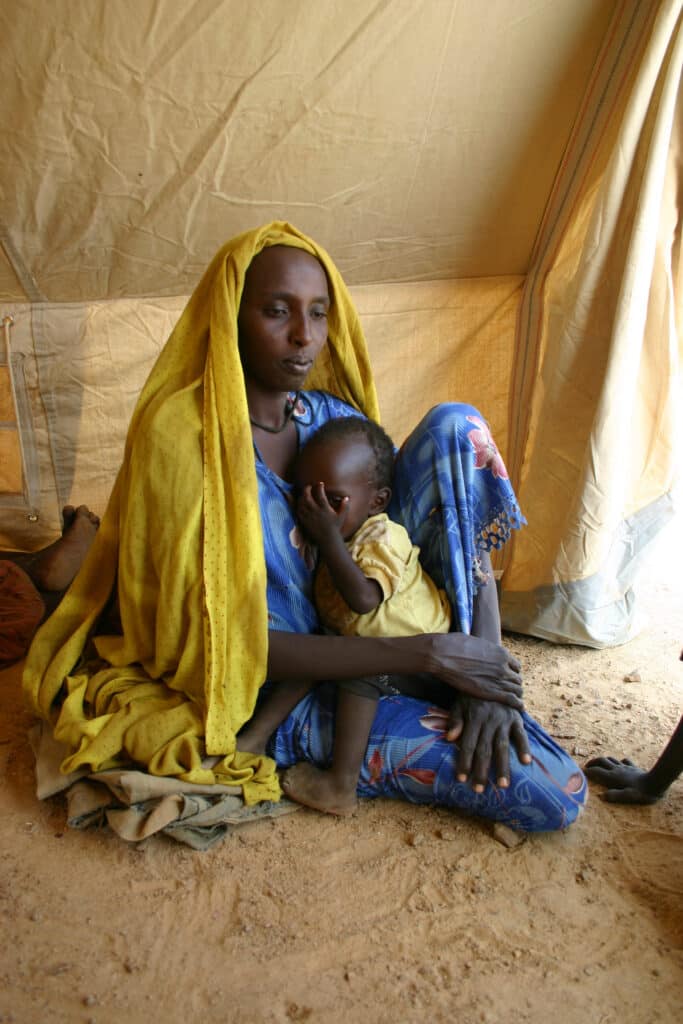Veggie Tunnels
Veggie Tunnels United Congregational Church of South Africa – South Africa Synod Kei Region, South Africa For many areas in which the United Congregational Church of Southern Africa (UCCSA) has a presence, food security is a real issue. Finding ways in which the church can make a difference and assist in helping people and communities feed themselves is a major part of the church’s ministry. One new and innovative way is the use of veggie tunnels in the UCCSA’s South Africa Synod. The veggie tunnel system is a simple project that allows people to grow their own vegetables in a relatively small area. The project is centered in an innovative low cost shade tunnel that measures 4 x 9 meters. While this project is very successful in rural areas, its small size even allows it to be used in congested urban zones. Long life cropping is undertaken on a simple hydroponics system in the veggie tunnels. Seed or seedlings are planted above ground in bags, in either sand or untreated wood chips. Twice daily, a liquid fertilizer is applied to each plant. A range of vegetables can be grown, including spinach, tomatoes, peppers, and beans. Excess produce is easily marketed within the local community. It is not uncommon for 1000 large spinach leaves to be harvested each week from one veggie tunnel. Each tunnel costs approximately $650. This includes the tunnel structure, bags for planting, delivery, set up, seedlings for the first crop, fertilizer, training, and either sand or wood chips as a growing medium. The tunnels are purchased through a non-governmental organization based in Johannesburg, South Africa. Training is provided along with the supplies. Several veggie tunnels have already been set up in the Kei Region, one of the most impoverished regions of South Africa, with the technical advice and support of Global Ministries missionary, Jon Barnes. Each of these is doing very well with their first spinach crop; and each is providing locally grown food for their communities. The tunnels at the Samaritan Care Centre are a great example, as they are providing much needed nutrition to those suffering from HIV/AIDS. Because of the success of these initial tunnels, there has been a strong desire by other communities in the Region to see this project started in their areas. Preference for new veggie tunnel sites will be given to those sites in which the presence of tunnels would directly benefit schools and/or health clinics. As noted above, the cost of one tunnel is $650 and comes complete with set up and the training of the local implementers of the tunnels. Donations To make an online gift to this project click here and select South Africa – Veggie Tunnels from the designation list. To make a gift by check to this project click here.
|
Donations |
|
To make an online gift to this project click here and select South Africa – Veggie Tunnels from the designation list. To make a gift by check to this project click here. |
| United Congregational Church of South Africa – South Africa Synod Kei Region, South Africa For many areas in which the United Congregational Church of Southern Africa (UCCSA) has a presence, food security is a real issue. Finding ways in which the church can make a difference and assist in helping people and communities feed themselves is a major part of the church’s ministry. One new and innovative way is the use of veggie tunnels in the UCCSA’s South Africa Synod. The veggie tunnel system is a simple project that allows people to grow their own vegetables in a relatively small area. The project is centered in an innovative low cost shade tunnel that measures 4 x 9 meters. While this project is very successful in rural areas, its small size even allows it to be used in congested urban zones. Long life cropping is undertaken on a simple hydroponics system in the veggie tunnels. Seed or seedlings are planted above ground in bags, in either sand or untreated wood chips. Twice daily, a liquid fertilizer is applied to each plant. A range of vegetables can be grown, including spinach, tomatoes, peppers, and beans. Excess produce is easily marketed within the local community. It is not uncommon for 1000 large spinach leaves to be harvested each week from one veggie tunnel. Each tunnel costs approximately $650. This includes the tunnel structure, bags for planting, delivery, set up, seedlings for the first crop, fertilizer, training, and either sand or wood chips as a growing medium. The tunnels are purchased through a non-governmental organization based in Johannesburg, South Africa. Training is provided along with the supplies. Several veggie tunnels have already been set up in the Kei Region, one of the most impoverished regions of South Africa, with the technical advice and support of Global Ministries missionary, Jon Barnes. Each of these is doing very well with their first spinach crop; and each is providing locally grown food for their communities. The tunnels at the Samaritan Care Centre are a great example, as they are providing much needed nutrition to those suffering from HIV/AIDS. Because of the success of these initial tunnels, there has been a strong desire by other communities in the Region to see this project started in their areas. Preference for new veggie tunnel sites will be given to those sites in which the presence of tunnels would directly benefit schools and/or health clinics. As noted above, the cost of one tunnel is $650 and comes complete with set up and the training of the local implementers of the tunnels. To read how congregations and groups are raising money for Veggie Tunnels, click here: Veggie Tunnels Donor Story |
Support this Ministry
To make a gift for this ministry online or by check use the online donation page.
- 100% of your gift will be directed to Veggie Tunnels
- You will receive updates on the work in this area as they become available
- Share in the vision of God’s abundant life for all people
Related Content
Faith, Advocacy, and Solidarity Amid Sudan’s Deepening Crisis
Since April 2023, Sudan has been engulfed in a brutal conflict between the Sudanese Armed Forces...
Read More“Great Things are Happening at Global Ministries” fall webinar series
Global Ministries launched its "Great Things Are Happening at Global Ministries" fall webinar...
Read MoreAll Africa Conference of Churches Prayer Alert for Cameroon’s General Elections
Ecumenical Greetings from the Secretariat of the All Africa Conference of Churches. The...
Read More


